
In much of the world, the 1993 blockbuster movie “Jurassic Park” and its unending sequels have become synonymous with the word “dinosaur.” But in western Colorado, the word “dinosaur” is better associated with the town of Fruita and its surroundings. Located ten miles west of the city of Grand Junction and not far from the Utah line, Fruita is a real “Jurassic Park” and a must-see destination for anyone interested in dinosaur paleontology. An imposing, 20-foot-tall, forest-green dinosaur looming over the town square reflects Fruita’s pride in its paleontological heritage and history. This model, an accurate, life-sized depiction of Ceratosaurus magnicornis, a Tyrannosaurus-like predator, is Fruita’s official “town dinosaur.” Along with many other dinosaurs, its fossilized bones were found and excavated only a few miles away.
Not to belittle Fruita’s town-square Ceratosaurus, but other nearby dinosaur-related attractions are far more impressive. Among them are an outstanding dinosaur museum, several paleontological research areas with hiking trails and interpretive signs, historic and active dinosaur-bone quarries, opportunities to accompany paleontologists on dinosaur-fossil digs, and even a national monument that showcases the region’s spectacular geology.
Fruita’s adventure with dinosaurs began in the late 1890s, shortly after a series of remarkable western fossil discoveries, mainly in Colorado and Wyoming, had transformed dinosaur paleontology from an obscure academic pursuit into an exciting and dynamic science with a large public following. These landmark discoveries had all occurred within exposures of the Morrison Formation, the sediments of which were laid down during the Jurassic Period some 160 million years ago.
Diese Geschichte stammt aus der February 2020-Ausgabe von Rock&Gem Magazine.
Starten Sie Ihre 7-tägige kostenlose Testversion von Magzter GOLD, um auf Tausende kuratierte Premium-Storys sowie über 8.000 Zeitschriften und Zeitungen zuzugreifen.
Bereits Abonnent ? Anmelden
Diese Geschichte stammt aus der February 2020-Ausgabe von Rock&Gem Magazine.
Starten Sie Ihre 7-tägige kostenlose Testversion von Magzter GOLD, um auf Tausende kuratierte Premium-Storys sowie über 8.000 Zeitschriften und Zeitungen zuzugreifen.
Bereits Abonnent? Anmelden
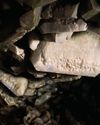
Rockhounding Ohio's Lake Erie Islands
A short ferry boat ride three miles from Ohio’s Lake Erie coastline is South Bass Island, better known as Put-in-Bay or the “Key West of the North.”
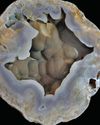
Iowa's Hidden Treasures
Exploring Keokuk Geodes: How They're Made & What's Inside
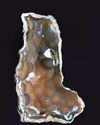
Agatized CORAL
Florida's Collectible State Stone
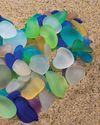
Rockhounding Florida's Beaches
Beachcombing serene stretches of Florida can reveal fascinating finds like fossilized shark teeth, sea glass, quartz, agate and even coral fragments.
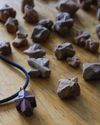
Collecting Staurolite
Hot Spots In Virginia & Georgia
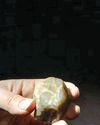
Pecos Valley Diamonds
New Mexico's Ancient Attraction

12 Tips for Rockhounding Tucson's Greatest Shows
Tucson in February becomes the international hub for buying and selling colored gems, rocks, minerals and fossils.
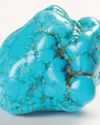
Turquoise in the American Southwest
A Water & Sky Souvenir
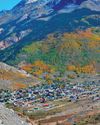
Touring Colorado's MINERAL BELT
It's a Showcase of Mining History & Minerals
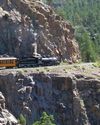
Geology &Colorado's Taurish Traiks
Most of Colorado’s tourist trains today were originally constructed in the late 1800s to serve the state’s lucrative mining operations.